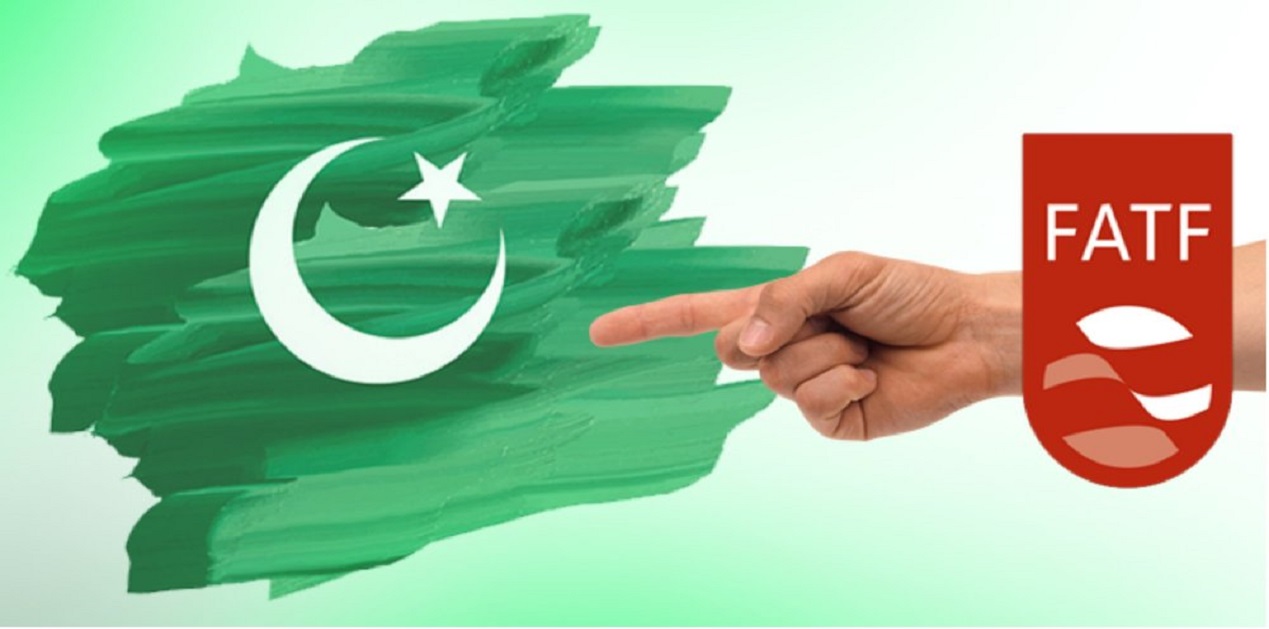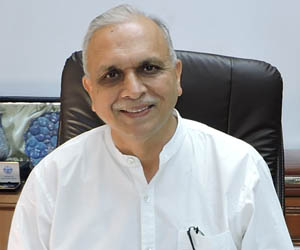The Financial Action Task Force (FATF), set up in 1989 following a G-7 resolution, provides the international standards for anti-money laundering and combatting terrorist financing (AML/CFT). An Inter-governmental organisation with 38 members and two observers, the FATF is a policy making body which sets “standards and promotes effective implementation of legal, regulatory and operational measures for combating money laundering, terrorist financing and other related threats to the integrity of the international financial system”.1
From time to time the FATF issues ‘guidelines’ on the subject and carries out the assessment of the AML/CFT regimes in member countries and provides them guidance for improvement. It has developed detailed methodologies in this regard. The methodology emphasizes the importance of structural elements such as political stability, high level commitments, the rule of law, independent judicial structure, accountability, integrity and transparency etc. for an efficient and durable AML/CFT measures. At the same time, it takes note of the significance of contextual factors such as the level of corruption and the maturity of regulatory and supervisory regime in the country as affecting the AML/CFT measures. 2
The FATF has been monitoring Pakistan for some time now. Pakistan, on whose soil several terrorist groups operate freely, and whose agencies are known to have created and supported many of these groups, is an obvious weak point in the international fight combat terrorist financing.
Countries with Strategic Deficiencies
The FATF has identified several countries which have ‘strategic deficiencies’ in their AML/CFT regimes. As on October 2018, these were: The Bahamas, Botswana, Ethiopia, Ghana, Pakistan, Serbia, Sri Lanka, Syria, Trinidad and Tobago, Tunisia and Yemen. The FATF remains engaged with these countries monitoring their progress. It gives them ample time to improve their AML/CFT regimes which is often an incremental process. The cases of Iran and North Korea are instructive to understand how FATF goes about its business. For instance, in 2016, the FATF received high level political commitments from Iran that it would address AML/CFT deficiencies. As a result, the FATF decided in February 2018 not to press for counter-measures against Iran. However, it also decided that Iran will remain in the so called ‘FATF Public Statement’ until it completes its action plan. Thus Iran has been given time but it remains in the FATF list of countries with “strategic deficiencies”. 3
What happens if the country concerned does not comply despite repeated persuasions? In such cases FATF calls upon its member countries to take ‘counter measures’. The case of North Korea is illustrative. According to a public statement by the FATF,
“… Further, the FATF has serious concerns with the threat posed by the DPRK’s illicit activities related to the proliferation of weapons of mass destruction (WMDs) and its financing….…the FATF further calls on its members and urges all jurisdictions to apply effective counter-measures, and targeted financial sanctions in accordance with applicable United Nations Security Council Resolutions, to protect their financial sectors from money laundering, financing of terrorism and WMD proliferation financing (ML/FT/PF) risks emanating from the DPRK.” 4
Pakistan and the FATF
Pakistan has been on the FATF’s watch list, popularly called the ‘grey list’ for quite some time now. The FATF found a number of ‘strategic deficiencies’ in Pakistan’s AML/CFT regime. It wanted Pakistan to demonstrate that5:-
- Terror Financing (TF) risks are properly identified, assessed, and that supervision is applied on a risk-sensitive basis;
- Remedial actions and sanctions are applied and complied with by financial institutions in cases of AML/CFT violations;
- Competent authorities take enforcement action against illegal money or value transfer services (MVTS) in a coordinated fashion;
- Authorities are identifying cash couriers and enforce over the illicit movement of currency and understanding the risk of cash couriers being used for TF;
- The coordination between provincial and federal authorities on combating TF risks is improved;
- The law enforcement agencies (LEAs) identify and investigate “the widest range of TF activity”; prosecute targeted persons and identities;
- Terror Financing prosecutions result in effective, proportionate and dissuasive sanctions and enhancing the capacity and support for prosecutors and the judiciary;
- Comprehensive financial sanctions are imposed against all 1267 and 1373 designated terrorists and those acting for or on their behalf, “including preventing the raising and moving of funds, identifying and freezing assets (movable and immovable), and prohibiting access to funds and financial services”;
- Penalties are enforced against federal and provincial authorities who violate TF provisions; and,
- Designated persons are deprived of their resources and the usage of the resources.
From the above summation it is clear that Pakistan’s record in countering anti- money laundering and terrorist financing is extremely problematic. Despite assurances, Pakistan has not been able to satisfy the FATF. That is why it has been put on the watch list. Whether counter measures against Pakistan would be applied remains to be seen.
A FATF week long meeting is being held in Paris from 18th February. It comes soon after the Pulwama terrorist attack owned by Jaish-e Mohammad (JeM). This terrorist group is linked with the AL Qaeda and has committed several high profile attacks in India in the recent years including the attack on the Indian parliament, J&K assembly, Pathankot air base, Uri army base, Gurdaspur and in Pulwama. The leader of JeM, Masood Azhar, lives in Bahawalpur, Pakistan and holds rallies all over the country. He should be the first one to be booked by Pakistan under the FATF guidelines.
The FATF should be persuaded not to take Pakistan’s anti-terror financing violations lightly and take counter measures against it. This will require hard work on the diplomatic front, in particular with the US and the European Union (EU). China can be expected to bail out Pakistan. In the case of North Korea, the FATF could call for ‘counter measures’ because there are several existing UN Security Council Resolution against North Korea because of the latter’s nuclear and missiles proliferation activities. This is not the case with Pakistan, so it remains to be seen whether Pakistan will be treated the same way as North Korea or will it again be let off lightly.
End notes
- http://www.fatf-gafi.org/about/ accessed on 18.2.2019
- http://www.fatgafi.org/media/fatf/documents/methodology/FATF%20Methodology%2022%20Feb%202013.pdf, accessed on 18.2.2019.
- http://www.fatf-gafi.org/publications/high-riskandnon-cooperativejurisdictions/documents/public-statement-june-2018.html, Accessed on 18.2.2019 “In June 2016, the FATF welcomed Iran’s high-level political commitment to address its strategic AML/CFT deficiencies, and its decision to seek technical assistance in the implementation of the Action Plan. Given that Iran provided that political commitment and the relevant steps it has taken, the FATF decided in February 2018 to continue the suspension of counter-measures.” And, “Iran will remain on the FATF Public Statement until the full Action Plan has been completed. Until Iran implements the measures required to address the deficiencies identified in the Action Plan, the FATF will remain concerned with the terrorist financing risk emanating from Iran and the threat this poses to the international financial system.”
- http://www.fatf-gafi.org/publications/high-riskandnon-cooperativejurisdictions/documents/public-statement-october-2018.html, Accessed on 18.2.2019.
- http://www.fatf-gafi.org/countries/a-c/bahamas/documents/fatf-compliance-october-2018.html#Pakistan, accessed on 18.2.2019.
“In June 2018, Pakistan made a high-level political commitment to work with the FATF and APG to strengthen its AML/CFT regime and to address its strategic counter-terrorist financing-related deficiencies. Pakistan will work to implement its action plan to accomplish these objectives, including by: (1) demonstrating that TF risks are properly identified, assessed, and that supervision is applied on a risk-sensitive basis; (2) demonstrating that remedial actions and sanctions are applied in cases of AML/CFT violations, and that these actions have an effect on AML/CFT compliance by financial institutions; (3) demonstrating that competent authorities are cooperating and taking action to identify and take enforcement action against illegal money or value transfer services (MVTS); (4) demonstrating that authorities are identifying cash couriers and enforcing controls on illicit movement of currency and understanding the risk of cash couriers being used for TF; (5) improving inter-agency coordination including between provincial and federal authorities on combating TF risks; (6) demonstrating that law enforcement agencies (LEAs) are identifying and investigating the widest range of TF activity and that TF investigations and prosecutions target designated persons and entities, and persons and entities acting on behalf or at the direction of the designated persons or entities; (7) demonstrating that TF prosecutions result in effective, proportionate and dissuasive sanctions and enhancing the capacity and support for prosecutors and the judiciary; and (8) demonstrating effective implementation of targeted financial sanctions (supported by a comprehensive legal obligation) against all 1267 and 1373 designated terrorists and those acting for or on their behalf, including preventing the raising and moving of funds, identifying and freezing assets (movable and immovable), and prohibiting access to funds and financial services; (9) demonstrating enforcement against TFS violations including administrative and criminal penalties and provincial and federal authorities cooperating on enforcement cases; (10) demonstrating that facilities and services owned or controlled by designated person are deprived of their resources and the usage of the resources.”
Image Source: https://media.mehrnews.com/d/2018/11/26/4/2967032.jpg
“ An effective AML/CFT system normally requires certain structural elements to be in place, for example: political stability; a high-level commitment to address AML/CFT issues; stable institutions with accountability, integrity, and transparency; the rule of law; and a capable, independent and efficient judicial system.” And, “Other contextual factors that might significantly influence the effectiveness of a country’s AML/CFT measures include the maturity and sophistication of the regulatory and supervisory regime in the country; the level of corruption and the impact of measures to combat corruption; or the level of financial exclusion. Such factors may affect the ML/FT risks and increase or reduce the effectiveness of AML/CFT measures.”











Post new comment